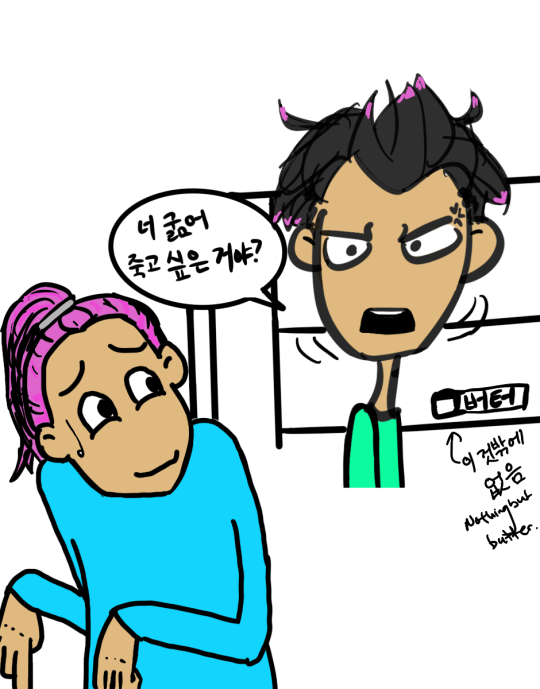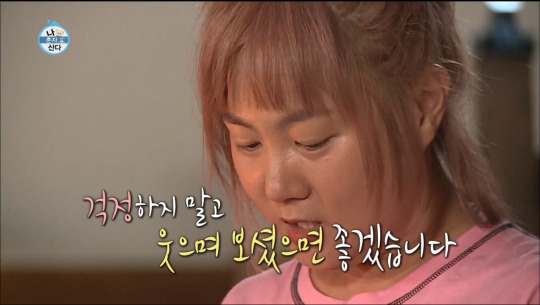Text
[All About Hangul 10] Reading Practice: English Loan Words in Korean
youtube
In this series, I'll be going over the basics of Hangul (한글): all the letters + their pronunciation + the alphabetical order. This is the final post in this series. In this video, I just go over some English loan words used in Korean so you can see how their pronunciation is different than the English pronunciation. This can also help you practice reading hangul since you should know the meanings of all these words already! Take a guess at what the English equivalent is :)
#korean#learn korean#korean studyblr#korean langblr#korean pronunciation#hangul#beginner korean#lin learns korean#resource#all about hangul
38 notes
·
View notes
Note
What did you major in college?
I majored in Linguistics (specifically the linguistics of English) with a concentration in English as a Second Language (ESL) Studies.
7 notes
·
View notes
Text
2018 Accomplishments
As the year is coming to a close, I’ve been reflecting on it while setting my goals for next year. I started feeling like I didn’t really do anything so I decided to list out everything I feel was an accomplishment, no matter how small.
Doing this has made me realize that I actually have done stuff! So if you’ve been feeling kind of down about 2018 too, add your accomplishments to this post. I want to see them! :)
My accomplishments:
Wrote the first draft of a novel
Wrote 1/2 of the first draft of another novel
Made a kinetic novel in one month for NaNoRenO (writing the script + drawing the pictures + coding)
Moved to Korea! Got my first ever full-time job! + Renewed my contract so I have a job next year too lol
Started working out regularly (4-5 times a week)
Took the KIIP pre-test (for Korean classes provided by the government)
Registering and studying for the TOPIK (to be taken in Jan 2019). Done 3 TOPIK practice tests
Have been taking iTalki Korean lessons 2-3 times a week since July
Read a book all in Korean for the first time! And it only took like a month and a half, way shorter than I expected
Feeling increased comfort & fluency in terms of speaking Korean
Paid off 1/2 of my student loans and acquired no other debt
Started taking a calligraphy class, all done in Korean
Finally fulfilled my dream of going to Jeju-do and hiking Hallasan
Also hiked Jirisan for 2 days straight :)
Went to a concert for the first time (saw DAY6 <3)
Actually put effort into meeting people and socializing more instead of staying home all the time...
Implemented a habit/goal tracking system that actually works for me
What have you accomplished in 2018?
24 notes
·
View notes
Text
ㄴ/는 거야 Grammar

Thank you, @shanharifanart for the question on an older post. And also, I’m so sorry I just saw this comment recently. Not all notifications get sent to my phone. I saw this super late while browsing on my computer. Anyway, the question as about 한 거야.
ㄴ/는 거야 or the polite ㄴ/는 거예요 is a sentence ending that can be used in the present or past with both verbs and adjectives. It’s basically a more emotional way to talk instead of giving just basic information or straight facts.
And, it’s used mostly in these situations:
–>giving new (or surprising) information
–>responding to something (with emotion)
–>telling a story to someone (this is because you’re typically telling new or surprising information haha)
–>recounting or clarifying information
So, here are the basic conjugations.
Verbs:
No 받침 present tense 는 거야/는 거예요 / No 받침 past tense ㄴ 거야/ㄴ 거예요.
하는 거야 (하다/하고 있다) / 한 거야 (했다)
Yes 받침 present tense 는 거야/는 거예요/ Yes 받침 past tense 은 거야/은 거예요
먹는 거야 (먹다/먹고 있어) / 먹은 거야 (먹었다)
Adjectives:
No 받침 —> ㄴ 거야/ㄴ 거예요
슬픈 거야 (슬프다)
Yes 받침 —> 은 거야/은 거예요
좋은 거야 (좋다)
Adjectives don’t really get treated as having a past tense in many Korean grammatical structures because it’s often seen as an unchanging state.
Here are some examples:
그거 들었어? 소영이가 그 오빠랑 사귀는 거야! Did you hear that? Soyoung is dating that older guy!
This sounds more surprised like “I’m telling you something!” Instead of “그 오빠랑 사귀고 있어” which just conveys the information a little more dryly. So, if you don’t care, you might use 사귀고 있어. But if this is big news, 사귀는 거야 is more likely to be used.
어제 남자친구가 갑자기 헤어지자고 한 거야. Yesterday, my boyfriend suddenly said we should break up! (let’s break up).
이쪽으로 갈까? (Goes off in another direction.) 엥? 어디 가는 거야! 이리 와! Should we go in this direction? *goes off in another direction.* Eh? Where are you going??
*Like “Where on earth are you going” or “where exactly are you going?” or “where the hell are you going?”
It’s actually tough to use naturally. And, it will take a lot of listening to others use it and practice before you really master it! Because it is used all the time.
But, it’s not used for just conveying facts. Here is an example.
A: 뭐 해? What are you doing?
B: 공부하고 있어. I’m studying.
A: 금요일이잖아. 공부가 그렇게 좋아? It’s Friday. Do you like studying that much?
B: 내일 시험이 있어서 공부하는 거야. I’m studying because I have a test tomorrow.
Here you can’t replace 공부하고 있어 with 공부하는 거야. It would be unnatural because you’re only conveying a fact with no emotion or response or wish to tell this person something surprising. But the second instance has some emotion in it.
Or here.
A: 너 계란 있어? Do you have any eggs?
B: 없어요. No. (I don’t have any.)
A: 그럼 빵은 있어? Then, do you have bread?
B: 그것도 없어요. I don’t have any of that either.
A: 그럼 우유는 있어? Then, do you have any milk?
B: 아 그것도— ah that too–
A: 그것도 없는 거야? 너 굶어 죽고 싶은 거야?? You don’t have that either? Do you want to starve to death??
By the end of the conversation, A can easily express annoyance or surprise that B has no food in their house.
Tip: You’ll see this written and pronounced often as 는 거에요 instead of 는 거예요 in formal speech. It’s probably because it’s a little easier to say. There are many Koreans who don’t know the correct spelling of this grammar point. So, spelling and pronouncing it wrong is actually a bit more natural as long as you aren’t submitting it as homework.
I hope this helps! Let me know if you have any questions.
234 notes
·
View notes
Text
[All About Hangul 9] The Alphabetical Order
youtube
In this series, I'll be going over the basics of Hangul (한글): all the letters + their pronunciation + the alphabetical order. In this video, I go over the alphabetical order of the consonants and vowels.
#korean#learn korean#korean studyblr#korean langblr#korean pronunciation#hangul#beginner korean#lin learns korean#resource#all about hangul
27 notes
·
View notes
Text
I finally understand the meaning of -ㄹ/을 텐데
Basically this grammatical point is expressing what would happen or would have happened. When -ㄹ/을 텐데 is at the end of the second clause, the first clause usually ends with some kind of -면 or -도, stating that IF (or EVEN IF) so and so were true THEN so and so WOULD happen or WOULD HAVE happened.
But according to this post on -ㄹ/을 텐데 (which I have read a million times over the 2 years since I've started learning Korean), there's another grammar point that can express the meaning of “so and so would happen or would have happened,” which is -(았/었)을 것이다 (which is just the future tense but when used in a supposition with -면 or -도, it more so means “would” than “will”).
The difference between the two is that -ㄹ/을 텐데 expresses feelings of regret/annoyance/"oh that's too bad” whereas -(았/었)을 것이다 doesn’t have an emotional nuance.
That’s all fine and dandy. I’ve known the above for quite some time but for some reason it’s never really clicked until now.
The sentence that finally made me understand
“반대였다면 아마도 지금 우리 사귈 텐데.”
“If it were the other way around, maybe we’d be dating right now.”
Just bear with me for a moment while I explain the circumstances behind this sentence. So basically when I’m bored, I like to daydream and play out random little stories in my head. For the past couple of months or so, I’ve been saying all the dialogue in Korean in my head (so at least I’m practicing my Korean right? lol). Basically it’s like watching an imaginary Korean movie.
Anyway, today I was playing out a very kdrama-esque story where these two guys like this one girl (yep the ole love triangle) and the girl ends up dating one of them because after she was stuck in a bad situation that guy offered to take her home first and they ended up hanging out more blah blah. But one day while the 3 of them are hanging out, those 2 get in an argument so the non-boyfriend guy drives her home and finally confesses to her that he’s liked her all this time.
So I imagined that after his confession he said to her:
“반대였다면 아마도 지금 우리 사귈 거야.”
“If it were the other way around, maybe we’d be dating right now.
He’s referring to that day where she was stuck in the bad situation. He meant if he were the one to take her home maybe they would have ended up dating instead.
But after I thought up that sentence, I then realized... wait, wouldn’t -ㄹ/을 텐데 work better in that situation because he was regretful, right? He regretted not taking her home that day, and he wants to express those emotions to her.
So I went back and read that post I mentioned earlier yet again, and now it’s finally clicked because I understand what that emotional nuance behind -ㄹ/을 텐데 is now.
The difference between “사귈 거야” and “사귈 텐데” in that sentence is that the first one doesn’t have an emotional nuance. He could just be making a supposition about what may have happened offhandedly like “oh hmm you never know, maybe this would’ve happened instead. Maybe we would be dating now.”
But with -ㄹ/을 텐데, it’s not just “oh maybe this would’ve happened.” It’s more like “maybe this would’ve happened and I regret that it didn’t or that it’s no longer possible.”
Perhaps a better example: 그럴 텐데 by DAY6
If my blathering above doesn’t make any sense then maybe this example is more helpful. 그럴 텐데 by DAY6 is a song I really like and have been listening to for months but I also never really understood it (but then again I’ve never analyzed the lyrics as closely as I have now haha).
I recommend giving it a listen and taking a look at the lyrics.
youtube
The song is basically about regret over breaking up with somebody, so it gives you a good idea of the emotions behind this grammar point.
So let’s look at some of the chorus. These two lines are actually split apart but the lines in the middle aren’t as important for understanding this grammar point:
“돌아간다면, 갈 수 있다면”
“If I went back, if I could go back”
“너에게 내 전부를 다 줄 텐데. 그럴 텐데.”
“I’d give you my everything. I would.”
The first line is that first clause I was telling you about earlier. It just gives some background info, stating “if so and so were true.” And note that the grammar point -다면 goes really well with -ㄹ/을 텐데 because -다면 means “if” but it has more of a hypothetical nuance than plain -면. Because -ㄹ/을 텐데 is all about what you think would happen but it didn’t or maybe even can’t happen anymore (eliciting regret), the hypotheticalness of -다면 is suitable.
So it’s like saying “If I could go back (hypothetically), I’d give you my everything (and I’m regretful that I can’t do that anymore--that I missed my chance to give you my everything).”
Anyway, I hope that helps someone else who’s been struggling with the elusive -ㄹ/을 텐데. If not, maybe try imagining situations where you could use this grammar point like I did and that might make it click!
그 걸 더 일찍 했다면 더 빨리 이해했을 텐데! (If I had done that earlier, I would have understood it sooner!)
Good luck with your studies :)
#korean#korean langblr#korean studyblr#day6#kpop#learn korean#korean grammar#korean expression#lin learns korean#resource
173 notes
·
View notes
Text
[All About Hangul 8] ㅡ, ㅢ, ㅣ
youtube
In this series, I'll be going over the basics of Hangul (한글): all the letters + their pronunciation + the alphabetical order. In this video, I go over the last 3 vowels: ㅡ, ㅢ, ㅣ.
#korean#learn korean#korean studyblr#korean langblr#korean pronunciation#hangul#beginner korean#lin learns korean#resource#all about hangul
18 notes
·
View notes
Text
[Storytime] My students protested in my class?!?
youtube
So a couple weeks ago I had the worst--and then the best--experiences while teaching so far in Korea. Long story short: my students protested in my class because they wanted to watch a movie instead of having our normal English class. Needless to say, I wasn’t prepared for the chaos that ensued.
9 notes
·
View notes
Text
[All About Hangul 7] ㅜ, ㅝ, ㅞ, ㅟ, ㅠ
youtube
In this series, I'll be going over the basics of Hangul (한글): all the letters + their pronunciation + the alphabetical order. In this video, I go over the next 5 vowels: ㅜ, ㅝ, ㅞ, ㅟ, ㅠ
#korean#learn korean#korean studyblr#korean langblr#korean pronunciation#hangul#beginner korean#lin learns korean#resource#all about hangul
25 notes
·
View notes
Photo

“고등학교를 졸업하고 대학 다닐 때 학업이 너무 힘들었던 순간이 있었어요. 하고 싶은 일도 많고, 해야 할 일도 많은데 제가 그것을 다 따라잡지 못하고 있다는 느낌을 많이 받았거든요. 너무 지쳐서 제 고등학교 국어 선생님께 카톡으로 그 이야기를 말씀드렸더니, 딱 세글자의 답장이 오더라고요. ‘천천히’라고. 그게 지금까지도 기억에 남아요.”
“After I graduated from high school, I had some tough times with my studies in university. There were so many things that I wanted to do and so many things that I had to do, but I felt like I wasn’t able to keep up with it all. I was so exhausted that I sent a message telling my high school Korean language teacher everything, and I got an exactly six-letter response: ‘slowly.’ I still remember that.”
- 이 캠페인은 서울시·평생교육진흥원의 서울 청년 갭이어 프로젝트, ‘청년인생설계학교’ 와 함께합니다 -
150 notes
·
View notes
Text
[KSP 10] V -는데 + 또 V -거든(요) Because V but also V
youtube
Welcome back to Korean sentence patterns! Today we’ll look at a more complex sentence which you can use in situations when you want to tell someone the reason for something, but that reason has 2 aspects.
Today’s sentence:


종민이 형 싫다는 사람이 없는데 또 좋다는 사람도 없었거든요.
Because there's no one who doesn't like Jongmin but there's also no one who likes him.
Because this sentence and all it’s various parts are better explained visually than through text like this, I won’t write up a post. So refer to the video above for the breakdown of today’s sentence!
Also, this is the last post in this series!
Good luck with your studies :)
70 notes
·
View notes
Text
learn korean : the lazy way
you may have already been in that situation where you’re trying to communicate with a native korean via texts but somehow aren’t able to distinguish some words because they’re written a certain way. well as well as in english or any other languages korean also has its lazy way of using it. we’ll see some words in their correct form and then in their “lazy/text” form.
이렇게 (like this) : 이러케
그렇게 (like that) : 그러케
어떻게 (how) : 어떠케, 어케
왜 이/그렇게 (why are u so…) : 왤케
그렇구나 (i see) : 그러구나
~고 싶다 (to want) : 고시퍼
귀엽다 (to be cute) : 겹다
conjugated : 귀여워 -> 기어워/여워, 키여워/어워
괜찮아 (its okay) : 괜차나, 갠차나
싫어 (to hate) : 시러
맞아 (to be right, correct) : 마자
전화 (phone) : 저나
~잖아 : 자나
미안해 (to be sorry) : 미아내, 먄
ㄱㄱ (고고) : let’s go
ㄴㄴ (노노) : no
ㄷㅊ (닥쳐) : shut up
ㅇㅋ (오키) : okay
ㅂㅇ (바이) : bye
ㅎㅇ (하이) : hi
ㅇㅈ (인정) : i admit
ㄱㅅ (감사) : thanks
2K notes
·
View notes
Text
[All About Hangul 6] ㅗ, ㅘ, ㅙ, ㅚ, ㅛ
youtube
In this series, I'll be going over the basics of Hangul (한글): all the letters + their pronunciation + the alphabetical order. In this video, I go over the next 6 vowels: ㅗ, ㅘ, ㅙ, ㅚ, ㅛ.
#korean#learn korean#korean studyblr#korean langblr#korean pronunciation#hangul#beginner korean#lin learns korean#resource#all about hangul
44 notes
·
View notes
Text
How to stop procrastinating on tasks you dread doing
After embarking on a journey of creating some new daily and weekly habits this month (and managing to succeed except for that week when I was sick), I've finally come to understand why I really dread doing certain things.
Simply, it's just the fact that I hate starting anything. And I mean anything. Even things I find fun. I haven't watched a new k-drama in months just because I don't want to start one. And I love k-dramas.
So if you're struggling to get things done, you likely have a similar problem. It's just getting started that's hard. Once I'm actually in the middle of doing something, it's fine. So here are some tips that help me get started.
Tip #1: Do something similar but simpler.
In my case, the task I dread the most everyday is writing 500 words of the first draft of my novel. Once I'm writing though, I actually have fun. Yet for some reason I put it off everyday haha
But another daily habit I've been working on is reading some of a book everyday. Reading is similar to writing but it's so much easier. I don't have as much resistance to reading so it's easy to start.
I either read fiction or a book on the craft of writing so once I read a chapter or so of this book, I find myself more amped up for writing.
Another thing I do sometimes is just think about the story. Without actually writing anything, I start thinking about the next scene and what might happen (I haven't planned most of this novel so I'm just writing willy-nilly basically lol) and that also usually gets me in the mood to start writing that scene.
So for you maybe this could be:
When studying a foreign language, watch some videos/tv in that language then do your actual studying.
Homework: Do the tiniest and/or most enjoyable bit of homework first then your larger, harder stuff
Chores: Start small like just picking up stuff off the floor and then get into the actual mopping, dusting etc
But there's an important thing to keep in mind when using this tip. You have to do the simple task and the dreaded task really close together, preferably one after the other. It's all about momentum. If you do the small task then go do something else that's unrelated, you lose the momentum. And the whole point of doing the small task in the first place is to gain momentum! Which brings me to the next tip.
Tip #2: Momentum, momentum, momentum
Once I start being productive I've noticed it's so much easier to just keep going and knock off all my tasks.
It's actually the reason why the pomodoro method just doesn't work for me and I've tried it so many times. I'm not a "take breaks in the middle" kind of person because any break halts my momentum which makes it hard to get started again.
I'm definitely a "do all the things at once then take a break for the rest of the day" kind of person, so if you're similar this tip will work for you.
After gaining some momentum by doing a similar but simple task, just do everything in one long chain.
In my case, in the mornings, I'll go from reading a chapter of a Korean book to writing my Korean essay thing to exercising. Reading in Korean is obviously similar to writing in Korean. But exercising doesn't have anything in common except the fact that it's another task on my list.
Once I'm in the "productive mood" I like to milk it and do as much as I can then take a long break when I get too tired.
You can chain anything really. The trick is to just not think about it too much. If I paused and thought "hmm do I really want to exercise right now and what exercise should I do" etc, it breaks the momentum. I just see the next task I have to do and start doing it.
Tip #3: Make it more convenient to do the task.
Increasing the convenience of doing a task will lower the barrier to entry by making it feel like the task is easier to start.
A small example from my life is that I really hate washing my face in the evening. I know it's weird. But anyway after dinner, I turn on the water heater (otherwise the water will be freezing cold) and wash the dishes.
Well guess what? I like washing my face with warm water too. So I always think, "well while I have the water heater on, I might as well go wash my face then turn it off."
Already having the water heater on eliminates one extra step that I'd have to do to wash my face which makes it more convenient.
This also demonstrates another example of starting with the similar but simpler task, which for me is washing the dishes.
So just do whatever you can to make doing the thing you dread more convenient like:
Lay out everything you need on your desk/work space and keep it there until you complete the task.
Open every program you'll need on your computer and have them open until you complete the task (in my case I always have Scrivener, which I use to write my novel, open)
Lay out your exercise clothes in advance or maybe even sleep in them if you exercise in the morning.
If you workout at home like me, you can always have your exercise mat on the floor or whatever equipment you use out.
Also for exercise, plan your workouts in advance. Like I said in the previous tip, deciding what workout to do breaks momentum. I usually follow along with YouTube videos so before I go to bed I open up the YouTube video I plan on doing in the morning and just hit play when it's time.
Tip #4: When all else fails, promise yourself a reward.
If you have a little bit of self-control, this can be an effective method for you, assuming there's something you want.
It can be as simple as I just want to lay in bed and watch YouTube videos, which is usually the reward I give myself haha
And there's nothing as sweet to me as lazing about completely guilt-free because I did the task. Because the thing is, I can laze about without having done the task but there will always be that tinge of guilt, the ole "I really shouldn't be doing this right now...," which ruins everything.
Now that I've experienced guilt-free lazing about, I live for it.
And this doesn't just apply to my personal life. At work, if I'm smart and effective, I can get all my lesson planning and prep done so that I have one or two hours left before the end of the work day which means sitting at my desk watching junk. Ah yes, the highlight of my work day.
Anyway, I hope maybe these tips will help you overcome the dreaded task(s) and enjoy yourself guilt-free!
982 notes
·
View notes
Note
i have a question!! you posted about this grid style paper that people should learn how to write on if they want to take topik; eventually i'd like to take topik, i'm still far from it, but still i was already wondering how exactly you'd write on this grid paper??? one syllable per box?
I guess you’re talking about this joke I made.
Yeah, it’s one syllable per box, but the rules are more complicated than that. For example, when you write ellipsis, instead of writing three dots … you have to write six in the middle of the squares, not at the bottom.
The paper is called squared manuscript paper in English and 원고지 in Korean. Be careful, Chinese and Japanese also have it but it has different format and different rules for writing on it.
I don’t know how to use it exactly nor how strictly you need to follow the rules when writing essay for TOPIK since I can’t take TOPIK, but I did a quick Google search for 원고지 사용법 and “how to use Korean squared manuscript paper” and this is what I found
Korean site with very detailed explanation of each rule
A few simple rules in English and practice paper for download
Another short explanation in English with two simple examples
Scanned essay sheet from TOPIK
I’m sure you can find many more if you use similar search queries.
116 notes
·
View notes
Text
[KSP 9] V –지 말고 + V –면 좋겠다 I wish you would V instead of V
youtube
Welcome back to Korean Sentence Patterns! Today, we'll continue to look at another grammatical structure that includes -(으)면.
Today's sentence:

[Source: 나 혼자 산다 (I Live Alone): E256 1:20:03]
걱정하지 말고 웃으며 보셨으면 좋겠습니다.
I wish you'd watch while smiling and not worry.
This sentence has two different parts as you can see from the bolded and not bolded parts in the quote above. Let's look at each separately.
VERB + –지 말고 "Don't V and..."
This one is also made up of two parts: the negative command ("Don't V") -지 말다 + the connective ("V and ...") -고.
The rules for the negative command are to attach -지 directly to the verb stem and conjugate 말다 appropriately (마 for informal, 마세요 for polite):
가다 –> 가지 마(세요) "Don't go."
먹다 –> 먹지 마(세요) "Don't eat."
And it's the same for the connective. You just attach -고 directly to the verb stem:
가다 –> 가고 ("go and …")
먹다 –> 먹고 ("eat and …")
Example: 울지 말고 그냥 먹어 = Don't cry and just eat (Just eat and stop crying).
VERB + –(으)면 좋겠다 "I wish V"
This grammatical point expresses a wish or hope. It can be translated as "I wish V" or "I hope V" or "It'd be nice if V".
One thing to note is that it can also be in the past tense but has the same meaning of being a wish in the present tense (V + –았/었으면 좋겠다)
Example: 같이 가면 좋겠어요 = I wish you would / could come with me.
The Template: V –지 말고 + V –(았/었)(으)면 좋겠다.
The first half V -지 말고 is what you don't wish for and the second half V –(았/었)(으)면 좋겠다 is what you do wish for.
So you'd use this sentence structure when you want to tell someone what you do and don't wish/hope for.
Here are our variations (bolded parts to show where they go in the translations):
말하지 말고 들었으면 좋겠어요. I wish you wouldn't talk and would listen. [[Maybe a more natural translation: I wish you'd listen and stop talking (instead of talking).]]
게임하지 말고 공부하면 좋겠어요. I wish you wouldn't play games and would study. [[Maybe a more natural translation: I wish you'd study and stop playing games (instead of playing games).]]
And that's it! Good luck with your studies :)
#korean#learn korean#korean langblr#korean studyblr#korean grammar#korean expressions#korean sentence patterns#lin learns korean#resource#korean show
151 notes
·
View notes
Video
youtube
A new Korean video is up! I talk about some Korean words that people often confuse (including myself!). I put so much effort into making aesthetically pleasing editing, hahaha, so I hope y’all like it!!
48 notes
·
View notes